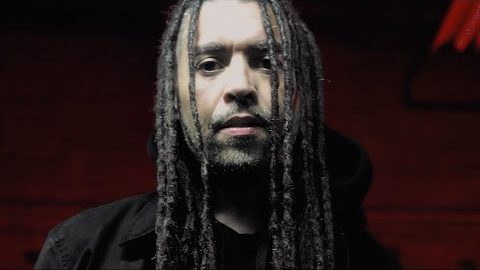
Putting morality under the microscope, A Normal Family – based on Herman Koch’s 2009 novel The Dinner, which has also been adapted into three other films over the last decade by American and European filmmakers – is a profoundly haunting and intensely unsettling masterpiece. With polished visuals and an experienced cast, director Hur Jin-ho concocts a morally complex work that will both challenge and reward viewers.
The film opens with a road rage incident that leaves one man dead and his daughter severely injured. Criminal lawyer Jae-wan (Kill Boksoon‘s Sol Kyung-gu) is asked to defend a wealthy executive’s son in the case, while his younger brother, doctor Jae-gyu (Arthdal Chronicles‘ Jang Dong-gun), performs emergency surgery on the injured girl. Once a month, the two brothers, along with their wives, meet for a fine dining meal in an expensive restaurant.
Far more than just a well-paced narrative film, A Normal Family is a comprehensive philosophical inquiry to the question: Are humans naturally violent? The spectre of violence is everywhere: Jae-gyu’s son, Si-ho, (Kim Jung-chul) is repeatedly bullied by his schoolmates; Jae-gyu accidentally kills a small deer while driving; a juvenile is roughly chucked into a police car by two officers. The dementia that grips Jae-gyu and Jae-wan’s mother, causing her to shout at others and strike her helper, also feels violent.
The undercurrent of violence quietly intensifies throughout the film’s 116-minute run. At the beginning of the film, there is a close-up shot of Si-ho sitting next to Jae-wan’s daughter, Hye-yoon (Hong Ye-ji), and he ends up squashing a bug with his finger, which makes for visceral, tactile (albeit uncomfortable) cinema. Another day, both teenagers go to a party and, on the way home, erupt into a booze-driven frenzy and begin kicking at piles of trash. However, a brutal incident against a homeless man involving both Si-ho and Hye-yoon sparks a fierce moral confrontation among their parents that unearths past disputes and frays loyalties.
The character development of each member in the film’s ensemble – Jae-wan, Jae-gyu, alongside their wives, Yeon-kyung (Queenmaker‘s Kim Hee-ae) and Ji-su (Fantastic Beasts: The Crimes of Grindelwald’s Claudia Kim) – produces a delicate and mesmerising waltz that repeatedly plays off one moral choice against another. Are children by nature innocent? If a father reports his child to the police for a crime, does that then make him a good or bad father? If a crime won’t get found out, does one still have a moral obligation to report it? Even the demarcations of Jae-gyu and Jae-wan’s occupations as “honourable” (paediatric doctor) and “less honourable” (criminal defence lawyer) start to blur as the two brothers wrestle with the principles underlying their choices. Each push and pull in Hur’s film is so precise and perfectly weighted, forming a complex picture of human morality.
Within A Normal Family’s interrogation of life’s values and principles, there is also a sharp (though less obvious) critique of upper-class privilege, and how that grants the freedom of moral choices in the first place. For example, the homeless man does not ever get the opportunity to reason against the cold brutality that visits him, but Yeon-kyung and Jae-gyu get the luxury of justifying that their medical and volunteer work earn them forgiveness. Yeon-kyung screams to Jae-gyu, “You’ve saved the lives of so many children. We did so many good deeds! We deserve that.” Yet, for those who commit crimes and are without privilege, incarceration is an inevitable and real outcome. With enough money and social status, the film argues that guilt can seemingly be brokered, morality negotiated and conscience cleaned.

Director Hur often shoots the film’s characters through windows – creating distance between them and the viewer, emphasising something unreachable and unreadable about the characters’ psyches. Additionally, there are few films that utilise music as skilfully as A Normal Family. Scored by veteran composer Cho Sung-woo, the film’s riveting music is no mere ornament to the visuals, but instead, an integral, living character driving suspicion and intrigue in the story.
It is in the last ten minutes of A Normal Family that the film truly reaches its most violent and terrifying climax. Some viewers may dislike the film’s ending, which fulfils Hur’s (and Koch’s) bleak vision of humanity – but the journey towards this point is so convincing, that in many ways, the conclusion feels necessary and unavoidable. The web of violence in A Normal Family extends far and wide, reaching beyond the cinematic screen to the viewer – leaving them finally to tussle with their own morality as well.
Details
- Director: Hur Jin-ho
- Starring: Sol Kyung-gu, Jang Dong-Gun, Kim Hee-ae, Claudia Kim
- Release date: September 14 (at the 2023 Toronto International Film Festival)
The post ‘A Normal Family’ review: a morally complex masterpiece from South Korea appeared first on NME.







